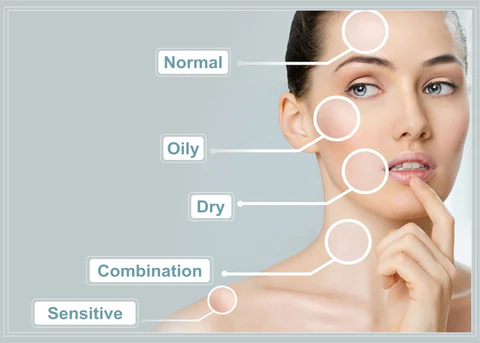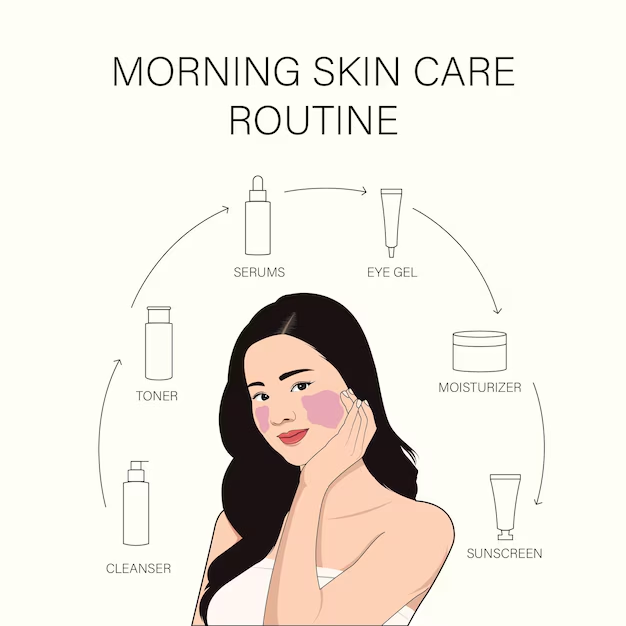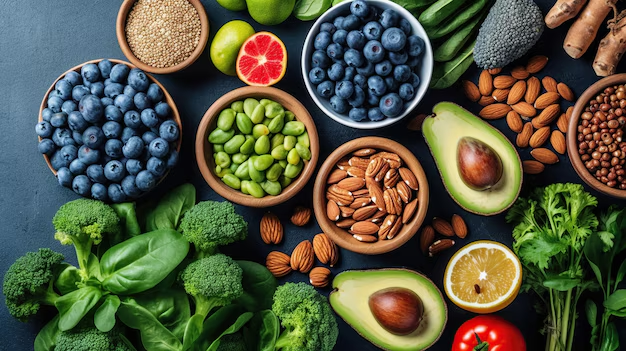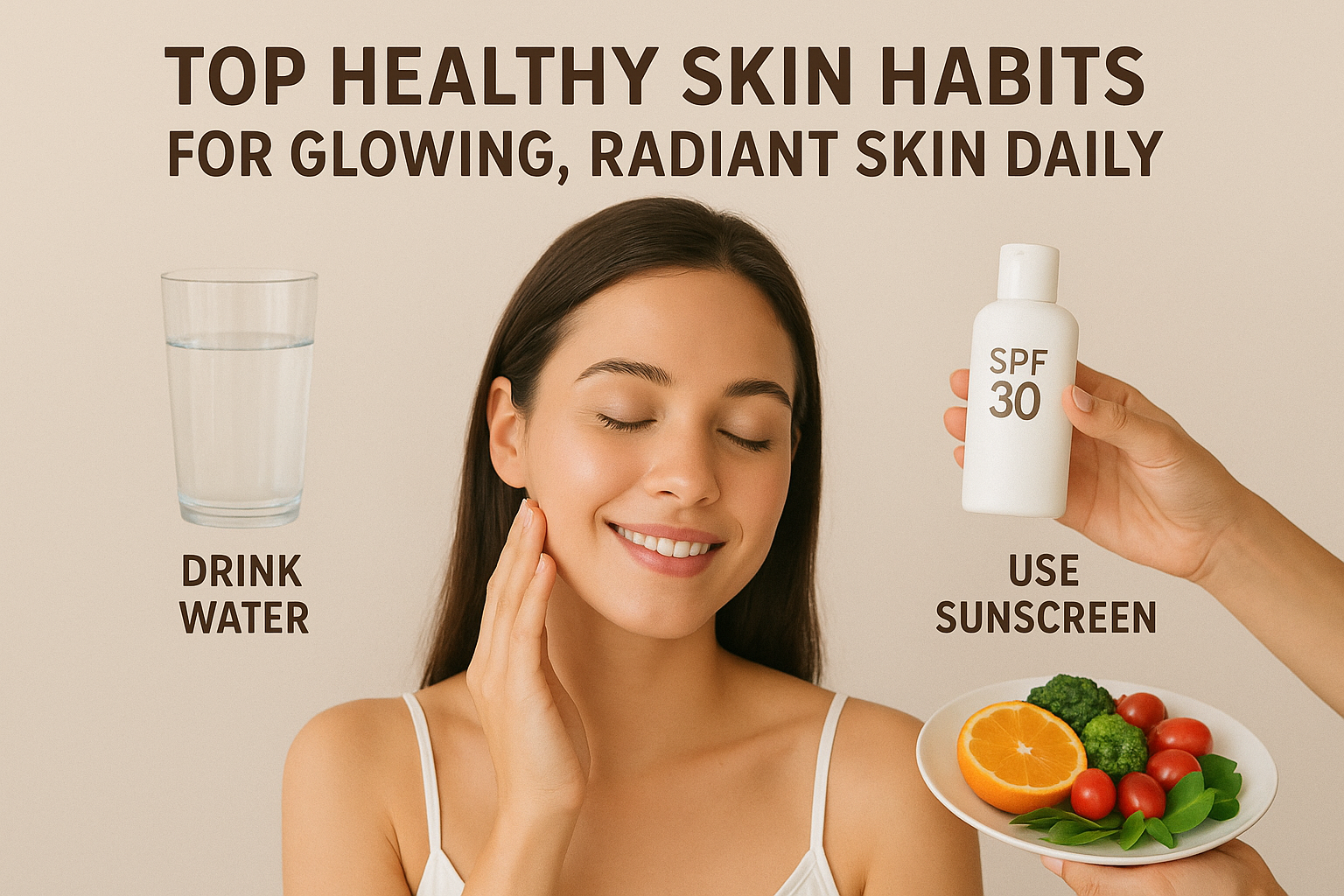Healthy skin habits are essential for maintaining a radiant, youthful appearance. Your skin reflects your internal health, lifestyle choices, and self-care practices, making it important to nurture it consistently. It’s not about relying on expensive products but developing simple, everyday habits that support skin health.
To build healthy skin habits, focus on basics like staying hydrated, eating a balanced diet, and getting enough rest. Cleansing and moisturizing regularly also help keep your skin nourished and protected. These habits strengthen your skin’s natural barrier, allowing it to look and feel better over time.
By prioritizing healthy skin habits, you can improve your skin’s resilience and radiance. A consistent routine that supports your body from the inside out is the most effective way to ensure your skin stays glowing, youthful, and healthy for the long term.
Understanding Your Skin Type
Before diving into specific habits, it’s important to first understand your skin type. Each skin type has unique needs and vulnerabilities, which affect how it responds to different products and routines. Identifying whether you have oily, dry, combination, or sensitive skin helps in tailoring the best healthy skin habits for your needs.
Healthy skin habits vary depending on your skin type, but they all share the goal of maintaining balance and nourishment. For example, dry skin may benefit from extra hydration, while oily skin might need products that control excess oil. Understanding your skin type ensures that you can adopt the right habits to support its health and appearance.

Normal Skin: Balanced, with minimal imperfections and no severe sensitivity.
Oily Skin: Shiny appearance, enlarged pores, and prone to acne.
Dry Skin: Dull, rough complexion, possible flaking or peeling.
Combination Skin: Oily in some areas (usually the T-zone) and dry in others.
Sensitive Skin: Prone to redness, irritation, and allergic reactions.
Knowing your skin type helps you choose appropriate products and treatments, preventing unnecessary damage or irritation.
Daily Skincare Routine Essentials
A consistent skincare routine is the foundation of healthy skin. By following a simple yet effective daily routine, you can keep your skin balanced and nourished. Start by cleansing your face to remove dirt and impurities, followed by applying a moisturizer to lock in hydration.
Including sunscreen into your routine is also key to protecting your skin from harmful UV rays. These basic steps form essential healthy skin habits that support skin health and help maintain a youthful appearance. Stick to this routine daily, and you’ll notice an improvement in your skin’s texture and overall glow.
Morning Routine
Cleanser: Use a gentle, pH-balanced cleanser suited to your skin type to remove oil and residue.

Toner: Helps restore pH balance and remove residual impurities.
Serum: Include serums with antioxidants (like vitamin C) to protect against environmental stress.
Moisturizer: Hydrates and locks in moisture.
Sunscreen (SPF 30+): Vital to prevent premature aging and protect against UV damage.
Night Routine
Double Cleanse: Use an oil-based cleanser followed by a water-based cleanser if you wore makeup or SPF.
Toner/Essence: Prepares the skin to absorb serums and treatments.
Treatment Serum: Retinol, hyaluronic acid, or niacinamide depending on your concerns.
Moisturizer: Use a richer cream at night for deeper hydration.
Weekly Add-ons
Exfoliation: 1–2 times per week using gentle chemical exfoliants like AHAs/BHAs
Face Masks: Hydrating, clay-based, or sheet masks depending on your needs.
Diet and Nutrition for Glowing Skin
“You are what you eat” is particularly true when it comes to skin health. Nutritional deficiencies often show up on your skin, causing issues like dryness, acne, or dullness. A balanced diet full of essential vitamins and minerals is key to maintaining healthy skin habits.
Prioritize nutrients like vitamin C, which supports collagen production, and omega-3 fatty acids, which help keep the skin hydrated. Antioxidants from fruits and vegetables can protect the skin from damage. By including these nutrients in your diet, you’ll nurture your skin from the inside out, promoting a healthy and glowing complexion.
Key Nutrients:

Vitamin C: Boosts collagen production and fights free radicals. Found in citrus fruits, berries, and bell peppers.
Vitamin E: Protects skin from oxidative stress. Found in nuts, seeds, and leafy greens.
Zinc: Reduces inflammation and helps heal acne. Found in legumes, whole grains, and dairy.
Omega-3 Fatty Acids: Keep the skin supple and moisturized. Found in fatty fish, flaxseeds, and walnuts.
Protein: Essential for skin regeneration and repair.
Hydrating Foods:
Cucumbers, watermelon, oranges, and celery help keep your skin hydrated from the inside out.
Limit These:
Excess sugar
Processed foods
Dairy (for some acne-prone individuals)
Alcohol and caffeine (can be dehydrating)
Hydration: The Skin’s Best Friend
Water plays a crucial role in maintaining healthy skin habits. It helps to keep the skin hydrated, supporting elasticity and preventing dryness. Proper hydration also flushes out toxins from the body, which can improve skin clarity and reduce the risk of breakouts.
In addition to boosting hydration, water aids in cell turnover, allowing your skin to renew itself more efficiently. Drinking enough water each day helps keep your skin looking youthful and glowing. Incorporating this simple habit into your daily routine can significantly enhance your skin’s health and appearance over time.
Aim for 8–10 glasses of water daily.
Herbal teas and hydrating fruits are excellent supplements.
Use humidifiers in dry climates to prevent your skin from drying out.
The Importance of Sleep for Skin Renewal
Sleep is essential for healthy skin habits, as it’s when your body and skin go into repair mode. During deep sleep, your skin works to repair damage from daily environmental stressors and regenerate cells, helping to maintain a youthful and healthy appearance.
Lack of sleep can lead to skin issues such as dark circles, puffiness, and increased signs of aging. Ensuring you get enough rest each night supports your skin’s natural healing process, leaving you with a refreshed and glowing complexion. Prioritizing sleep is a simple yet powerful habit to improve overall skin health.

7–9 hours of quality sleep nightly supports collagen production and cell turnover.
Sleep deprivation can lead to:
Dull complexion
Dark under-eye circles
Increased stress hormones, which may trigger acne or eczema
Tip: Use silk pillowcases to reduce friction and prevent sleep lines.
Managing Stress for Better Skin
Chronic stress can seriously affect your skin and disrupt healthy skin habits. When you’re stressed, your body produces more hormones like cortisol, which can increase oil production and lead to acne. Stress can also trigger or worsen conditions like eczema, psoriasis, and hives, making your skin more sensitive and irritated.
Managing stress is an important part of healthy skin habits. Relaxation techniques like deep breathing, exercise, or taking time for hobbies can help calm your mind and support your skin. By reducing stress levels, you give your skin a better chance to stay clear, smooth, and balanced. A calm body often leads to healthier, happier skin.
Effective Stress Management Techniques:
Exercise regularly: Boosts circulation and releases endorphins.
Mindfulness and meditation: Reduces cortisol levels.
Breathing techniques and yoga: Promote relaxation and balance hormones.
Adequate downtime and hobbies: Nourish your emotional well-being.
Avoiding Harmful Habits
Some habits can harm your skin over time and undo the benefits of healthy skin habits. Frequent touching of your face, using harsh products, or skipping sunscreen can weaken your skin’s natural barrier. These actions can lead to irritation, dryness, breakouts, or early signs of aging.
To maintain healthy skin habits, it’s important to avoid smoking, limit alcohol, and protect your skin from too much sun. These damaging habits reduce the skin’s ability to heal and stay youthful. Replacing harmful routines with gentle care and protection helps your skin stay smooth, clear, and healthy in the long run. Small changes can make a big difference over time.

Smoking
Smoking reduces blood flow to the skin, which means your skin gets less oxygen and fewer nutrients. Over time, this can cause your skin to lose its natural glow and become dull. Smoking also speeds up the aging process, leading to early wrinkles and a leathery texture, especially around the mouth and eyes.
Excessive Alcohol
Drinking too much alcohol can dehydrate your body and your skin, making it appear dry and tired. It may also lead to inflammation and trigger conditions like rosacea, causing redness and visible blood vessels on the face. Long-term alcohol use can make the skin more prone to damage and irritation.
Popping Pimples
Picking or popping pimples can push bacteria deeper into the skin, causing more inflammation and infection. This habit can leave behind permanent scars and dark spots, making acne worse in the long run.
Overwashing or Over-Exfoliating
Cleansing too often or scrubbing the skin too harshly can strip away its natural oils and damage its protective barrier. This can lead to increased sensitivity, dryness, and even more breakouts, especially for those with already delicate or acne-prone skin.
Sun Protection: Your Skin’s Shield
UV rays are one of the main causes of early skin aging and skin cancer. Over time, too much sun exposure can break down collagen and lead to wrinkles, fine lines, and dark spots. It can also damage the deeper layers of the skin, increasing the risk of long-term harm. Even on cloudy days, UV rays can still affect your skin.
As part of healthy skin habits, using sunscreen daily is very important. Choose a broad-spectrum sunscreen with SPF 30 or higher and apply it every morning, even if you’re indoors. Wearing hats, sunglasses, and staying in the shade during peak sunlight hours also helps protect your skin. These small steps can keep your skin healthy and looking youthful.
Sun-Safe Habits:
Apply broad-spectrum SPF 30+ every day, even on cloudy days.
Reapply every 2 hours when outdoors.
Wear protective clothing, hats, and sunglasses.
Seek shade between 10 AM – 4 PM, when UV rays are strongest.
Including Antioxidants in Skincare and Diet
Antioxidants protect the skin from damage caused by free radicals (pollution, sun exposure, etc.).
Topical Antioxidants:

Vitamin C: Brightens and firms skin.
Niacinamide: Reduces redness and strengthens the skin barrier.
Green Tea Extract: Soothes and protects.
Resveratrol: Found in grapes; excellent for anti-aging.
Dietary Antioxidants: Berries, dark chocolate, green tea, turmeric, and leafy greens.
Exercise for Radiant Skin
Regular physical activity plays an important role in healthy skin habits. Exercise improves blood flow, which helps deliver oxygen and essential nutrients to the skin. This increased circulation supports skin cell renewal and gives your skin a natural, healthy glow. It also helps remove waste products, including toxins, from skin cells.
Staying active can also help manage stress levels, which is another key part of maintaining healthy skin. Lower stress means fewer breakouts and skin flare-ups. Whether it’s walking, yoga, or more intense workouts, making physical activity a part of your routine supports both your overall health and your skin. Consistent exercise is a simple yet effective way to keep your skin looking fresh and vibrant.
Helps reduce stress, balance hormones, and manage weight.
Promotes sweating, which can help clear pores.
Tip: Always cleanse your face after working out to remove sweat and bacteria.
Conclusion
Achieving and maintaining radiant, youthful skin doesn’t require complex routines or expensive treatments—just dedication to consistent healthy skin habits. From understanding your skin type and following a daily skincare regimen to eating a nutrient-rich diet, staying hydrated, and protecting against environmental damage, these habits form the foundation of lasting skin health. Incorporating stress management, quality sleep, and regular exercise also plays a critical role in supporting your skin from the inside out.

Most importantly, be patient and kind to your skin, as true results come from long-term commitment rather than quick fixes. By embracing these healthy skin habits, you’ll not only improve your skin’s appearance but also boost your overall confidence and well-being. Start today with small, sustainable steps, and over time, you’ll build a lifestyle that supports glowing, resilient skin for years to come. Remember—healthy skin is a reflection of a healthy you.
FAQs
- What are the most important daily habits for healthy skin ?
The most important daily healthy skin habits include cleansing your face twice a day, using sunscreen with at least SPF 30, moisturizing according to your skin type, staying hydrated, and eating a balanced, nutrient-rich diet. Consistency in these habits is key to maintaining clear and radiant skin. - How does diet affect my skin health ?
Diet plays a significant role in skin health. Foods rich in vitamins A, C, E, omega-3 fatty acids, and antioxidants help maintain skin elasticity, reduce inflammation, and combat aging. On the other hand, high sugar and processed foods can trigger breakouts and dullness. - Is it necessary to use sunscreen every day, even indoors ?
Yes. UVA rays can penetrate windows and contribute to premature aging and skin damage, even when you’re indoors. Daily sunscreen use is one of the most effective healthy skin habits for preventing long-term skin issues. - How much water should I drink for healthy skin ?
While the exact amount varies by individual, a general guideline is 8–10 glasses (about 2–2.5 liters) of water per day. Staying hydrated helps maintain skin elasticity, prevent dryness, and support detoxification processes in the body. - Can stress really cause skin problems ?
Absolutely. Chronic stress can trigger flare-ups of acne, eczema, psoriasis, and other conditions. Managing stress through mindfulness, exercise, and adequate sleep is an essential part of holistic healthy skin habits.



